第52章
Could the hand of God's anger be more plain if it were printed in fire upon the sky? Israel was the evil one for whose sin they suffered this devastating plague.The Lord was rebuking them for sparing him, even as He had rebuked Saul for sparing the king and cattle of the Amalekites.Seventeen years and more he had been among them without being of them, never entering a synagogue, never observing a fast, never joining in a feast.Not until their judgment went out against him would God's anger be appeased.
Let them cut him off from the children of his race, and the blessed rain would fall from heaven, and the thirsty earth would drink it, and the eggs of the locust would be destroyed.But let them put off any longer their rightful task and duty before God and before the people, and their evil time would soon come.Within eight-and-twenty days the eggs would be hatched, and within eight-and-forty other days the young locust would have wings.Before the end of those seventy-and-six days the harvest of wheat and barley would be yellow to the scythe and ripe for the granary, but the locust would cover the face of the earth, and there would be no grain to gather.
The scythe would be idle, the granaries would be empty, the tillers of the ground would come hungry into the markets, and they themselves that were town-dwellers and tradesmen would be perishing for bread, both they and their children with them.
Thus in Israel's absence, while he was away at Shawan, the three-and-twenty judges of the new Synhedrin of Tetuan had--contrary to Jewish custom--tried and convicted him.
God would not let them perish for this man's life, and neither would He charge them with his blood.
Nevertheless, judges though they were, they could not kill him.
They could only appeal against him to the Kaid.And what could they say?
That the Lord had sent this plague of locusts in punishment of Israel's sin? Ben Aboo would laugh in their faces and answer them, "It is written." That to appease God's wrath it was expedient that this Jew should die? Convince the Muslim that a Jew had brought this desolation upon the land of the Shereefs, and he would arise, and his soldiers with him, and the whole community of the Jewish people would be destroyed.
The judges had laid their heads together.It was idle to appeal to Ben Aboo against Israel on any ground of belief.Nay, it was more than idle, for it was dangerous.There was nothing in common between his faith and their own.His God was not their God, save in name only.The one was Allah, great, stern, relentless, inexorable, not to be moved striding on to an inevitable end, heedless of man and trampling upon him--though sometimes mocked with the names of the Compassionate and the Merciful.But the other was Jehovah, the father of His people Israel, caring for them, upholding them, guiding the world for them, conquering for them;but visiting His anger upon them when they fell away from Him.
The three-and-twenty judges in session in the synagogue up the narrow lane of the Sok el Foki had sat far into the night, with the light of the oil-lamps gleaming on their perplexed and ashen faces.Some other ground of appeal against Israel had to be found, and they could not find it.At length they had remembered that, by ancient law and custom the trial of an Israelite, for life or death, must end an hour after sunset.
Also they had been reminded that the day that heard the evidence in a capital case must not be the same whereon the verdict was pronounced.
So they had broken up and returned home.And, going out at the gate, they had told the crowds that waited there that judgment had fallen upon Israel ben Oliel, but that his doom could not be made known until sunset on the following day.
That time was now come.In eagerness and impatience, in hot blood and anger, the people had gathered in the Sok three hours after midday.
The Judges had reassembled in the synagogue in the early morning.
They had not broken bread since yesterday, for the day that condemned a son of Israel to death must be a fast-day to his judges.
As the afternoon wore on, the doors of the synagogue were thrown open.
The sentence was not ready yet, but the: judges in council were near to their decision.At the open door the reader of the synagogue had stationed himself, holding a flag in his hand.Under the gate of the Mellah a second messenger was standing, so placed that he could see the movement of the flag.If the flag fell, the sentence would be "death," and the man under the gate would carry the tidings to the people gathered in the market-place.
Then the three-and-twenty judges would come in procession and tell what steps had been taken that the doom pronounced might be carried into effect.
Amid all their loud uproar, and notwithstanding the wild anger which seemed to consume them, the people turned at intervals of a few minutes to glance back towards the Mellah gate.